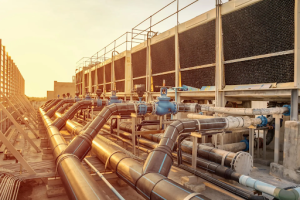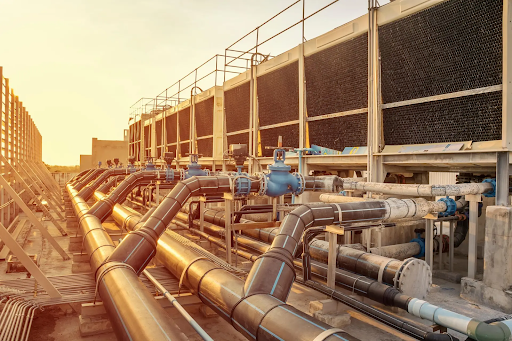Industrial cooling is an essential part of many manufacturing and production processes. From food processing plants to large factories, maintaining the right temperature is crucial for product quality and safety. Industrial chillers play a vital role in this process, but handling them efficiently requires specialized knowledge. This is where Industrial Chiller Training becomes invaluable for technicians and operators looking to enhance their skills and career prospects.
Understanding Industrial Chillers
An industrial chiller is a machine that removes heat from a liquid, usually water or a glycol solution, and transfers it to the environment. This cooled liquid is then used to maintain the temperature of equipment, products, or processes. Industrial chillers are widely used in industries such as plastics, pharmaceuticals, chemicals, and HVAC systems. Despite their importance, operating these machines can be complex, as they involve refrigeration cycles, compressors, pumps, and electronic controls.
Without proper training, operators may face frequent breakdowns, energy inefficiencies, or safety hazards. Learning how these systems function and how to maintain them correctly is the first step toward becoming a skilled industrial cooling professional.
The Importance of Industrial Chiller Training
Industrial Chiller Training equips individuals with practical and theoretical knowledge about chiller operation and maintenance. Training programs often cover topics such as refrigeration principles, electrical systems, troubleshooting techniques, and preventive maintenance. By participating in these courses, technicians gain hands-on experience, which helps them understand the inner workings of industrial chillers.
One of the key benefits of this training is improved operational efficiency. Skilled operators can detect issues early, reduce downtime, and optimize energy consumption. For industries, this translates into lower operating costs and better productivity. For employees, the training enhances expertise and opens up opportunities for career advancement in industrial maintenance and HVAC systems.
Learning Practical Skills
Industrial chiller systems are complex, combining mechanical, electrical, and chemical components. Industrial Chiller Training programs focus on practical skills such as adjusting refrigerant levels, inspecting compressors, and ensuring the cooling system runs at optimal performance. Trainees also learn how to read system diagrams, interpret temperature and pressure readings, and respond to alarms or unusual behavior in the system.
Hands-on training is crucial because it allows participants to practice these skills in a controlled environment. This real-world experience ensures that when they operate chillers in industrial settings, they can troubleshoot problems efficiently, minimize errors, and maintain consistent cooling performance.
Safety and Compliance Knowledge
Operating industrial chillers involves certain risks. Refrigerants can be hazardous, electrical components may cause shocks, and high-pressure systems can be dangerous if mishandled. Through Industrial Chiller Training, participants gain knowledge of safety protocols and industry standards. They learn how to handle chemicals safely, follow proper lockout and tagout procedures, and comply with environmental and regulatory guidelines.
Understanding safety and compliance not only protects the operator but also ensures that the workplace meets legal and environmental requirements. Companies benefit from reduced accidents, safer working conditions, and compliance with local and international regulations.
Career Growth and Professional Recognition
Completing Industrial Chiller Training can significantly enhance a professional’s credentials. Certified technicians are often preferred by employers because they bring verified skills to the workplace. This training can lead to higher salaries, promotions, and opportunities to work on more advanced or specialized systems.
In addition, trained professionals can take on supervisory or technical roles, guiding teams in maintenance operations or leading projects for chiller installation and optimization. The expertise gained through training positions individuals as valuable assets in the industrial cooling sector.
Staying Updated with Technology
Industrial chiller technology continues to evolve, with new energy-efficient systems, digital controls, and environmentally friendly refrigerants being introduced. Training programs keep participants up-to-date with these technological advancements. Industrial Chiller Training ensures that operators are not only proficient with current systems but are also prepared to handle future innovations.
Being knowledgeable about the latest trends and technologies allows technicians to recommend improvements, adopt best practices, and maintain high system performance over time.
Conclusion
Industrial chillers are essential for maintaining the efficiency and quality of many industrial processes. Mastering their operation requires more than just basic knowledge—it demands specialized training. Industrial Chiller Training provides technicians with the skills, safety awareness, and technological insight needed to excel in this field. By investing in this training, professionals enhance their capabilities, boost career prospects, and contribute significantly to the efficiency and success of the industries they serve.
With proper training, operating and maintaining industrial chillers becomes a manageable, rewarding, and highly skilled career path, offering long-term benefits for both the individual and the organization.




